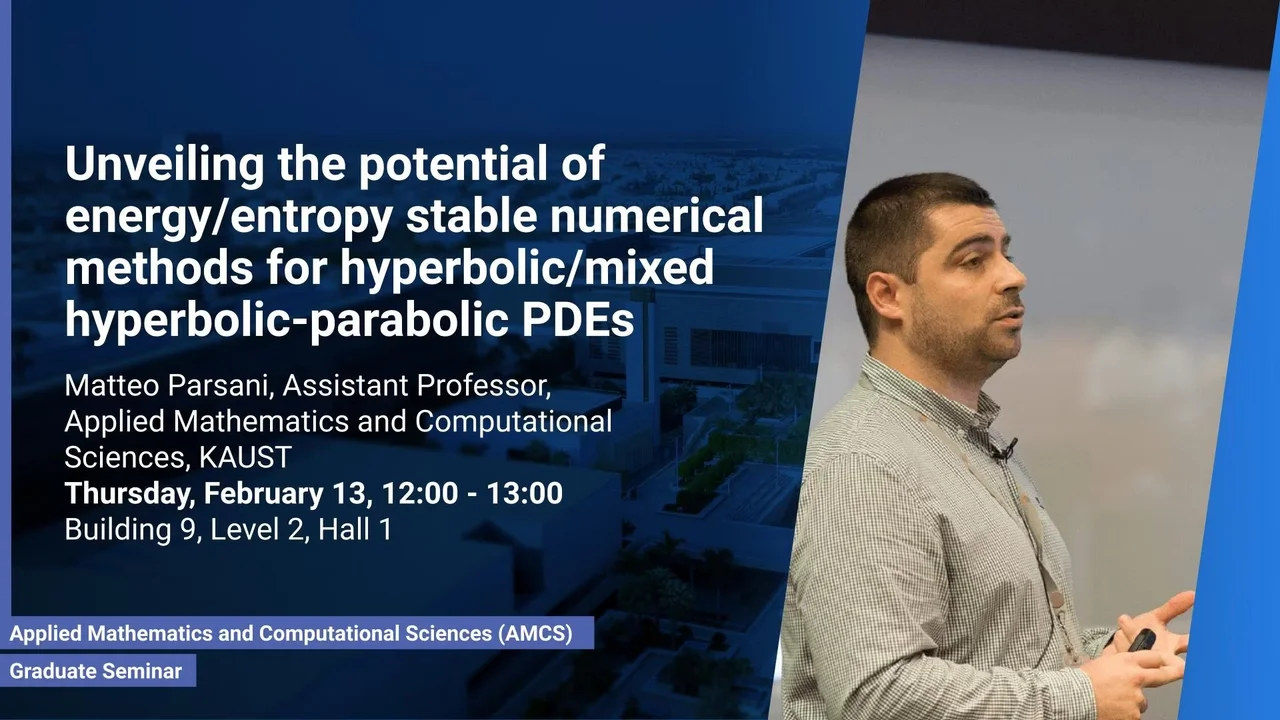
Unveiling the potential of energy/entropy stable numerical methods for hyperbolic/mixed hyperbolic-parabolic PDEs
Overview
Abstract
The demand for increasingly multidisciplinary reliable simulations, for both analysis and design optimization purposes, requires transformational advances in individual components of future PDEs solvers. At the algorithmic level, hardware compatibility and efficiency are of paramount importance in determining viability on future hardware. However, equally important (if not more so) is provable algorithmic robustness which becomes progressively more challenging to achieve as problem size and physics complexity increase. We show that rigorously designed adaptive semi- and fully-discrete energy/entropy stable numerical methods based on summation-by-part operators (SBP) provide an essential step toward a truly enabling technology in terms of stability, reliability, and robustness for next-generation hyperbolic/mixed hyperbolic-parabolic PDEs solvers.
Brief Biography
Matteo Parsani is an Assistant Professor of Applied Mathematics and Computational Science. He is also the principal investigator of the Advanced Algorithms and Simulations Lab (AANSLab) and a member of the Extreme Computing Research Center. He holds an M.Sc. in aerospace engineering with a specialization in computational aerodynamics from Politecnico di Milano and a Ph.D. in mechanical engineering from Vrije Universiteit Brussel. After a period as a NASA Postdoctoral Fellow at NASA Langley Research center, in October 2015, Matteo joined KAUST as Assistant Professor in the Applied Mathematics and Computational Science program. His current focus is on the stability and efficiency of spatial and temporal discretizations and structure-preserving techniques which allow mimicking the results from the continuous level to the discrete one.